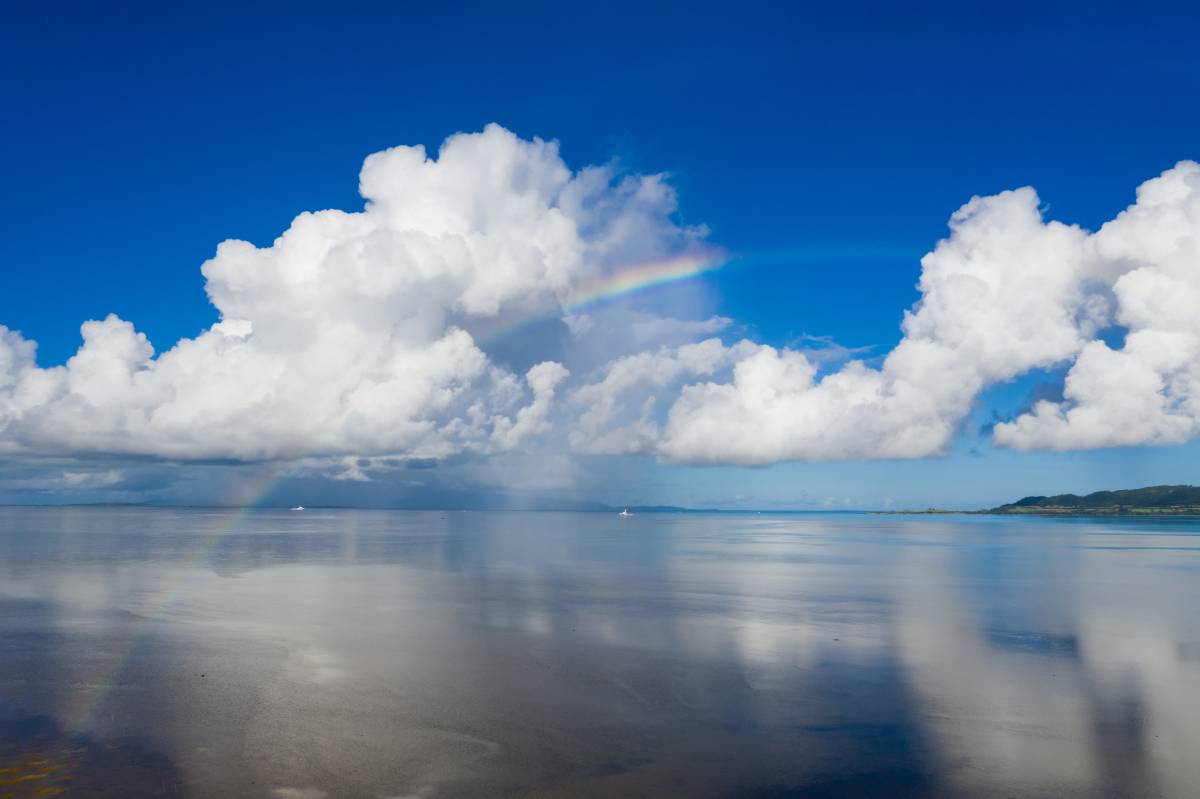When is the best time to travel to Okinawa?
When is the best time to visit Okinawa?
 This is a question we are frequently asked, as no doubt you’ve seen stories of typhoons and it does tend to get a bit hot from time to time 🙂 Like a lot of other islands around the world the weather can change very quickly, so picking the best time to visit can be difficult, but let us help.
This is a question we are frequently asked, as no doubt you’ve seen stories of typhoons and it does tend to get a bit hot from time to time 🙂 Like a lot of other islands around the world the weather can change very quickly, so picking the best time to visit can be difficult, but let us help.
Typhoons – June to November
Firstly the windy elephant in the room – typhoons. The typhoon season in Okinawa runs from June 1 to November 30 officially, which as you can see covers a large part of the year. However most of these will occur during August & September. Also, although there are around 26 typhoons in a season around Okinawa, only 3-4 a year will pass close enough to Okinawa to be a concern. August also coincides with some of the hottest weather in Okinawa so we’d probably advise avoiding August with caution in September. By October typhoons are a lot less likely, but not impossible and the weather is nicely cooling down, some of the best temperatures occur at the end of the summer going into Autumn where the skies are sunny and warm but the heat and humidity is decreasing.
In general though if the only time you can visit is August/September then don’t let typhoons worry you. Apart from needing changes to your plans for 1-2 days the island is almost entirely built from concrete so everything is very very safe with good alert and information systems. It is NOT like hurricane areas in the USA where some buildings cannot cope. If you stay inside you will be safe.

November – February
Looking around November/December and into January/February the temperatures are generally between around 20c in November dropping towards 15c as winter progresses so it can get quite cool, although the weather should generally be calm. Rainfall is not usually as high as the rest of the year in these months as well. Of course during the winter months beaches will be closed and there may be other tourist attractions that are not open, but if you prefer the cooler weather and are mostly planning on visiting indoor or year round attractions this could be a good choice
Rainy Season
Okinawa is sub-tropical and experiences a rainy season every year from around mid may until the end of June, when the temperature tends to rapidly rise. Sudden downpours are common but it doesn’t tend to rain all day or have light rain like more temperate climates.
So when to visit?
After that quick lesson in Okinawa weather and having lived here for over 15 years then we’d recommend the following depending on what you want to do and your tolerance for temperature!
January – Good time if you don’t mind cooler temperatures, less sun and some outdoor/tourist attractions being closed
February – Same as January
March – Better than January or February. Temperatures increasing nicely but not yet rainy season. Great time to visit
April – As March with the uptick in temperature continuing. Great time to visit
May – Likely to have frequent rain with higher temperatures and humidity. Avoid
June – As May
July – Great time. The temperature will be high but it’s perfect beach time as everything will be in full swing for the summer.
August – More risk of typhoons. Be aware and have backup plans for your trip or any planned activities
September – As August
October – Great time to visit. Still a typhoon risk but less than Aug/Sep and temps are coming down with less rainfall than July/August
November – Cooling temperatures with low rainfall. Good time if you don’t mind cooler temperatures, less sun and some outdoor/tourist attractions being closed
December – Cooling temperatures with low rainfall. Good time if you don’t mind cooler temperatures, less sun and some outdoor/tourist attractions being closed
Average temperatures and rainfall chart – https://www.climatestotravel.com/climate/japan/okinawa
We hope that helps you decide on the ideal time to visit Okinawa and if you have any questions just contact us using the button below. We love Okinawa and are happy to answer any questions you may have without obligation.
Subscribe for Weekly Deals

